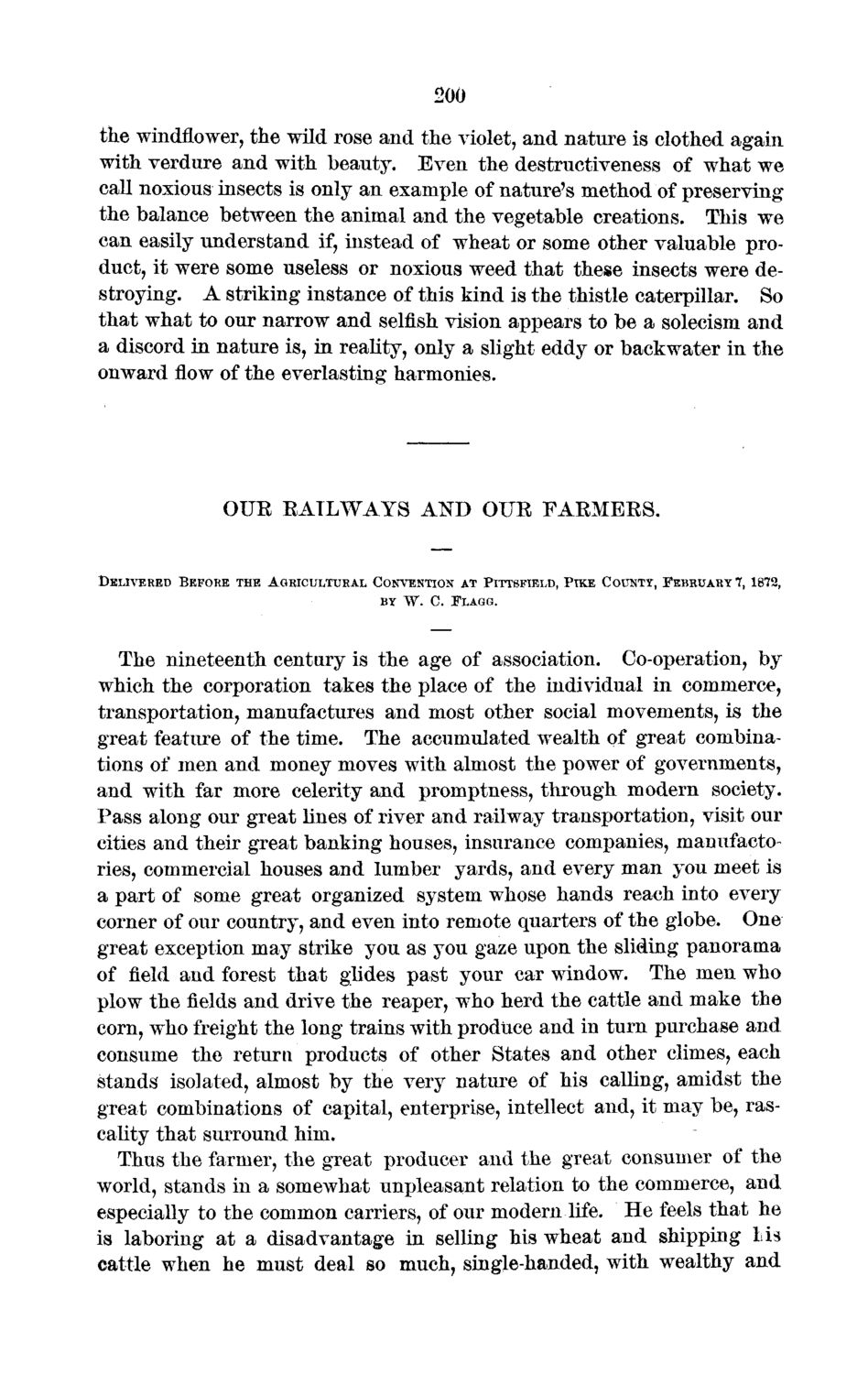| |
| |
Caption: Board of Trustees Minutes - 1872
This is a reduced-resolution page image for fast online browsing.

EXTRACTED TEXT FROM PAGE:
200 the windflower, the wild rose and the violet, and nature is clothed again with verdure and with beauty. Even the destructiveness of what we call noxious insects is only an example of nature's method of preserving the balance between the animal and the vegetable creations. This we can easily understand if, instead of wheat or some other valuable product, it were some useless or noxious weed that these insects were destroying. A striking instance of this kind is the thistle caterpillar. So that what to our narrow and selfish vision appears to be a solecism and a discord in nature is, in reality, only a slight eddy or backwater in the onward flow of the everlasting harmonies. OUB BATLWAYS AND OUE FABMEBS. DELIVERED BEFORE THE AGRICULTURAL CONVENTION AT PITTBFIELD, P I K E COUNTY, FEBRUARY 7,1872, BY W. C. FLAGG. The nineteenth century is the age of association. Co-operation, by which the corporation takes the place of the individual in commerce, transportation, manufactures and most other social movements, is the great feature of the time. The accumulated wealth of great combinations of men and money moves with almost the power of governments, and with far more celerity and promptness, through modern society. Pass along our great lines of river and railway transportation, visit our cities and their great banking houses, insurance companies, manufactories, commercial houses and lumber yards, and every man you meet is a part of some great organized system whose hands reach into every corner of our country, and even into remote quarters of the globe. One great exception may strike you as you gaze upon the sliding panorama of field and forest that glides past your car window. The men who plow the fields and drive the reaper, who herd the cattle and make the corn, who freight the long trains with produce and in turn purchase and consume the return products of other States and other climes, each stands isolated, almost by the very nature of his calling, amidst the great combinations of capital, enterprise, intellect and, it may be, rascality that surround him. Thus the farmer, the great producer and the great consumer of the world, stands in a somewhat unpleasant relation to the commerce, and especially to the common carriers, of our modern life. He feels that he is laboring at a disadvantage in selling his wheat and shipping Lis cattle when he must deal so much, single-handed, with wealthy and
| |